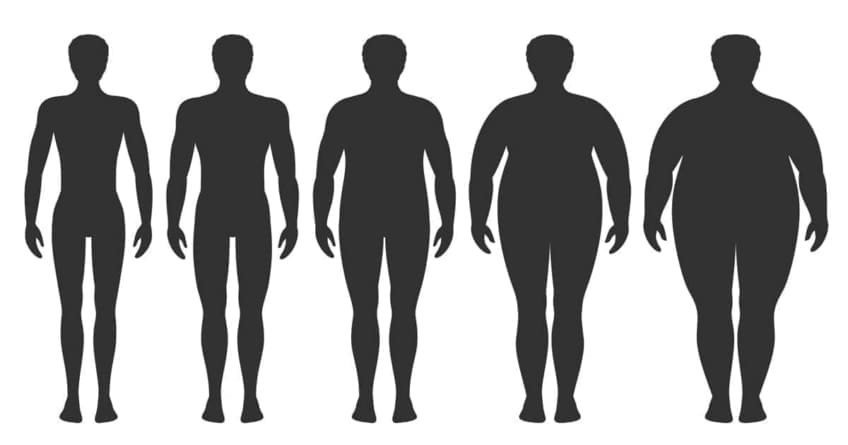
Maintaining a healthy weight is critical to your overall health. When you are overweight or have obesity, you are at higher risk of developing certain conditions. These could include high blood pressure, type 2 diabetes, or heart disease. In fact, some health experts believe that being significantly overweight can increase your risk for complications from certain infections, such as the COVID-19 virus. But how do you know what your ideal weight is? One way to measure it is called BMI, or body mass index.
Path to improved health
Every person has a BMI. It is a number that estimates how much body fat you have. BMI is calculated using your weight and your height, and can be a good indicator to see if your weight is healthy for how tall you are. There are many BMI calculators on the internet that you can use to see what your BMI is. There are also charts that can tell you what it is
You can even calculate it yourself:
- Multiply your weight in pounds by 703
- Divide that answer by your height in inches
- Divide that answer by your height in inches again
For example, take a man who weighs 200 pounds and is 6 feet tall (72 inches):
200 x 703 = 140,600
140,600 / 72 = 1,953
1,953 / 72 = 27.1
This man’s BMI would be 27.1.
A BMI that is low could mean you don’t have enough body fat and are underweight. A high BMI could mean that you have too much body fat and are overweight. To determine what your BMI means, use the following chart.
| BMI | Category | What it means |
| Below 19 | Underweight | You might need to gain some weight. Talk to your doctor. |
| 19 to 24 | Healthy | You are at a healthy weight. Try to maintain this weight. |
| 25 to 29 | Overweight | Don’t gain any more weight. You may need to lose weight. Check with your doctor. |
| 30 or higher | Have obesity | You probably need to lose weight. Talk to your doctor about the best ways to lose weight. |
Waist Measurement
Another tool doctors can use to see if you are at a healthy weight is your waist measurement. This measures how much fat you have around your waist. Research has shown that higher levels of fat around your waist (sometimes called “belly fat”) increases your risk of developing obesity-related conditions, such as heart disease or type 2 diabetes.
For men, a waist measurement of more than 40 inches means they are at increased risk of developing obesity-related conditions. For women, a waist measurement of more than 35 inches means they are at higher risk of developing these conditions.
Things to consider
BMI is not always the best way to tell if you are at a healthy weight. There are some people whose BMIs may not be a good reflection of how much body fat they have. These include:
- Athletes or people with a muscular build.Athletes usually have more muscle than the average person. Muscle weighs more than fat. So an athlete’s weight will not be a good indicator of how much fat he or she has in their body. They will tend to have higher BMIs.
- Older adults. People tend to lose muscle mass as they age. So the elderly have more body fat than the average person. Their BMIs could be higher. It is often better for an older person to have a BMI of 25 to 27 instead of under 25. This can help prevent osteoporosis (thinning of the bones).
- Children. For children and teens, their BMIs also depend on their age and their sex. They have a different calculation for their BMI.
- Gender. Males generally have more muscle mass than females, so they often have a higher BMI.
Because of these limitations, BMI should only be used as a screening tool. This means it can be the starting point for a conversation with your doctor about your weight. It should not be used to determine if you are overweight or not. Often, if you have an elevated BMI and begin an exercise routine, you may also see an increase in your BMI or fail to reduce your BMI due to increase in muscle weight. In this case, watching to see if your clothes are fitting looser or waistline is dropping might be a better estimate of a healthy change rather than your weight on the scale.
Questions to ask your doctor
- Where does my BMI fall on the chart of what is a healthy weight for my height?
- Do the BMI calculators differ for men and women?
- What other factors tell you if I am overweight or not?
- Do I need to lose weight?
- What is the best way for me to lose weight?
Resources
Centers for Disease Control and Prevention: Body Mass Index (BMI)
National Heart, Lung, and Blood Institute: Calculate Your Body Mass Index
![]()
Copyright © American Academy of Family Physicians
This information provides a general overview and may not apply to everyone. Talk to your family doctor to find out if this information applies to you and to get more information on this subject.







